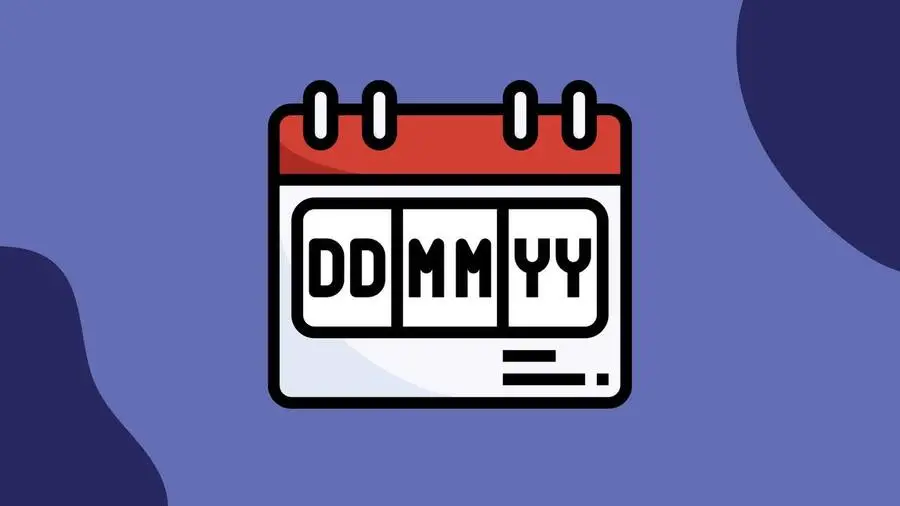For many of us, writing dates in English can seem a bit confusing. But don't worry, it's nowhere near as difficult as it seems. In this article, we'll break down how to write dates in English correctly to avoid confusion and leave a grammatically correct impression. Let's look at the key aspects of writing dates, as well as cover the names of months and time in English.
Dates in English
When we turn to the question of how dates are written in English, it's important to consider a few important rules and conventions. Firstly, let's understand the formats for writing dates.
In the United States, the widely used format is month, day, and year. For instance, “July 4, 2023” portrays the date as such. It's worth noting that the month's initial letter is capitalized, and for days less than 10, an ordinal number (1st, 2nd, 3rd, 4th, and so forth) precedes the number. Conversely, the UK and various other countries adopt the day, month, and year arrangement. For instance, the same date in English would appear as “4 July 2023”. In this structure as well, the month is capitalized, and ordinal numbers are employed for days commencing on the 1st and beyond. If you only need to specify the month and year, the sequence is as follows: month, year. For instance, “March 2023” or “December 2023”.
Years in English
Years play a pivotal role when discussing time spans and historical occurrences. The English language employs a specific convention for expressing years, which serves to enhance lucidity and prevent any potential confusion.
In English, it's imperative to utilize a four-digit numeral when denoting a year. This practice guarantees that the year remains unequivocally defined and obviates confusion spanning across centuries. For instance, if the year is 1998, it should be inscribed as “1998” and not abbreviated to “98”. This guideline serves as a safeguard against misinterpretation and ambiguity, particularly when scrutinizing and deciphering historical records.
Consequently, the implementation of a four-digit format for representing years in English contributes to lucidity, precision, and the preclusion of plausible misconceptions when interpreting temporal data. This standardized methodology holds significance for date depiction in English, academic research, and cross-cultural communication.
Naming months in English
In order to operate successfully with dates and time in English, it is necessary to master not only the rules of spelling dates in English, but also the ability to recognize their meanings. Special attention should be paid to the names of months, as well as the format of time representation. Knowing the names of months in English is a key component of writing dates correctly.
Here is a complete list of months and their corresponding names in English.

In addition to dates, it is also important to know how to write and interpret time in English. The format of time is usually “hours:minutes”. For example, “3:30 PM” means 3 hours and 30 minutes after noon. It is important to note that there are two basic time designations: 'AM' (ante meridiem), which means 'before noon', and 'PM' (post meridiem), which means 'after noon'. These labels hold significance in distinctly marking various segments of the day.
Being acquainted with the month names and mastering time notation not only enhances your English proficiency and confidence but also shields you from misconceptions when engaging with English materials, individuals, and records. Consequently, your ability to communicate, strategize, and manage time in English will be markedly improved.
Conclusion
Mastering the skills of correctly recording dates and times in English will undoubtedly enrich your communication and daily life. Understanding these aspects allows you to avoid misunderstandings, to design texts and documents more competently and professionally. But why is it important to go beyond this knowledge and strive to develop English even more?
Here are a few aspects:
- Global communication: English is an international means of communication. Knowing it helps you find common ground with people from different countries and cultures, which can be extremely useful in business and personal spheres.
- Professional development: Many companies and organizations require English language skills in their employees. This opens the door to a wider range of opportunities, including international career prospects.
- Education and Research: Much of the research, literature and educational material is available in English. Proficiency in it allows for deeper immersion and access to up-to-date information.
- Travelling: If you love travelling, proficiency in English will make it much easier to interact with locals, book hotels, get around and get information about places of interest.
To effectively master how to spell date in English, a tutor can be an indispensable support. This specialist will help you develop all aspects of the language: grammar, speaking practice, listening comprehension and written expression. Your tutor will tailor lessons to your needs and pace of learning, accelerating your progress.
TeMa's platform provides a convenient way to find experienced English tutors. You can choose a tutor according to your goals and schedule, and evaluate their professionalism through reviews from other students. Regular lessons with a tutor will help you use English more confidently in a variety of situations, from everyday conversation to business correspondence.


-preview.png)